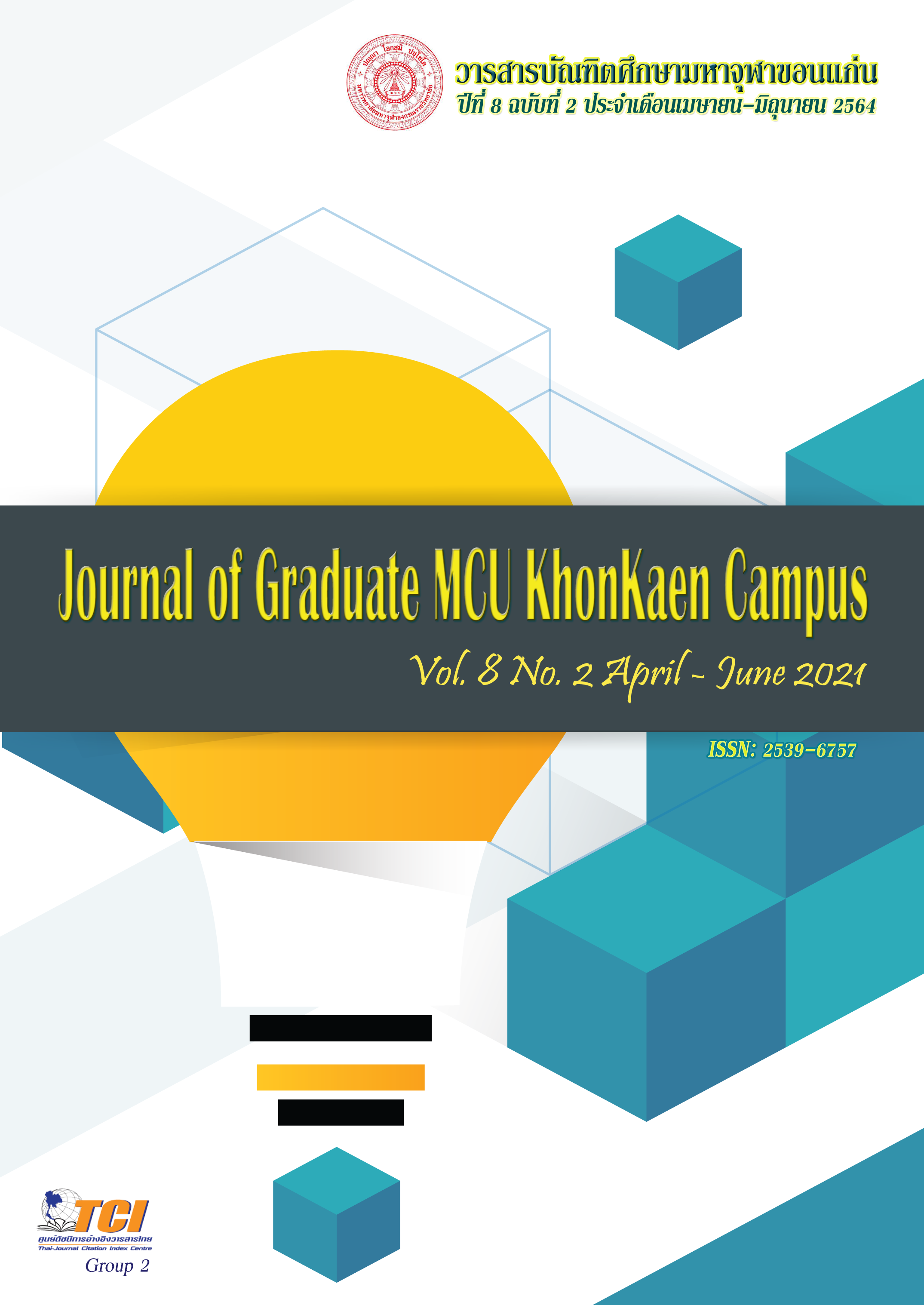BUDDHIST ETHICS IN HUMAN DEVELOPMENT
Main Article Content
Abstract
Buddhist ethics in human development is a principle to promoting that creates good behavior in the person that can be touched by showing behavior in the body, mind, and wisdom, so that human beings can realize the consciousness of self development to have a good body, honesty ,moral. Honestly, with wisdom in looking at oneself, telling oneself, using oneself as a reality. Human self- development with Buddhist ethics for development to the end leads to the value of humanity. True. Know their duties and responsibilities to self and society that can persuade and motivate others to follow to maximize the benefits, namely, in truth, it does not become a slave to the mundane and life. Bring yourself into the bliss of Nirvana
Article Details
References
พระครูวินัยธรอำนาจ พลปญโญ. (2017). พุทธจริยศาสตร์กับการพัฒนาการศึกษา เรื่อง ความจริง ความรู้ ความดี. วารสารสันติศึกษาปริทรรศน์ มจร, 5(1), 332-342.
พระครูปริยัติธรรมวงศ์. (2014). การเปรียบเทียบจริยศาสตร์ในพระพุทธศาสนาเถรวาทกับแนวคิดของเพลโต. วารสารวิชาการธรรมทรรศน์, 14(3), 139-152.
พระพรหมคุณาภรณ์ (ประยุทธ์ ปยุตฺโต). (2558). พจนานุกรมพุทธศาสน์ : ฉบับประมวลศัพท์. กรุงเทพมหานาคร: ธนธัชการพิมพ์.
มหาจุฬาลงกรณราชวิทยาลัย. (2539). พระไตรปิฎกฉบับ MCU. กรุงเทพมหานคร: โรงพิมพ์มหาจุฬาลงกรณราชวิทยาลัย.
วศิน อินทสรา. (2531). พุทธคุณ. กรุงเทพมหานคร: โรงพิมพ์ทองแก้ว.
Gary Martin. (2020). Last Words of The Buddha. Retrieved June 27, 2020, from https://www.phrases.org.uk/famous-last-words/buddha.html
Thich Nhat Hanh. (2014). Fear. New York : Harper Collins.

